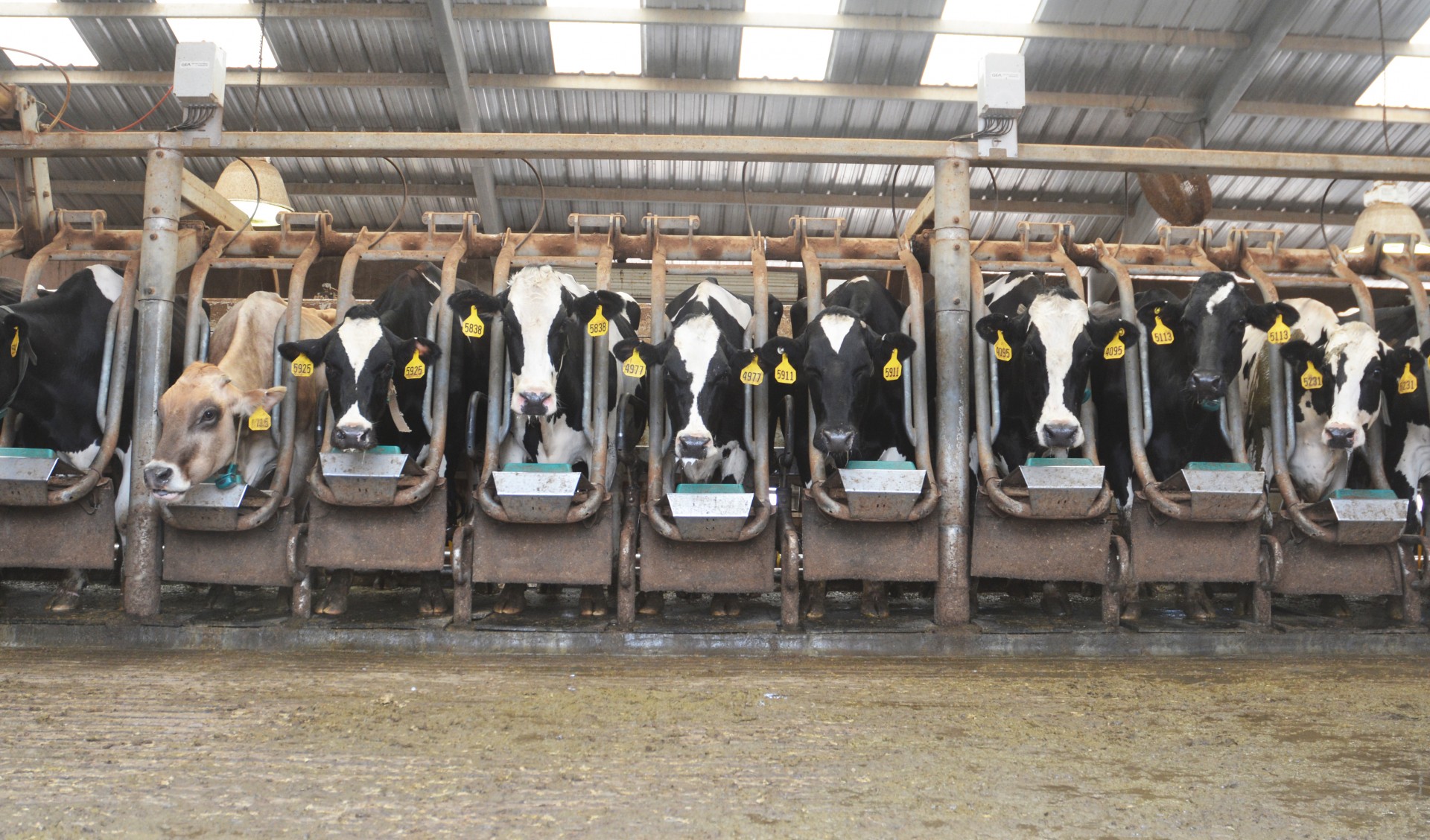Time to tackle antibiotic resistance in agriculture
In the run up to the World Health Organisation’s World Antibiotic Awareness Week, Dr Roger Harrison, a Public Health expert from The University of Manchester, explains why antibiotic resistance is not just a cause of concern for doctors.
"There has been much publicity about the widespread misuse and overuse of antibiotics and drug-resistant germs by doctors and clinicians. Recently, Dame Sally Davies, the Chief Medical Officer, argued again for international action because of the spread of antibiotic resistant bacteria in all parts of the world. The terrifying prospect of a world where operations would be impossible to carry out and simple cuts and grazes could lead to serious, if not fatal consequences is no longer a warning. Antibiotic resistance is killing at least 25,000 a year in Europe, and now predicted to kill over 10 million people each year worldwide, by 2050. And it wasn’t for nothing that Dr Tedros Adhanom Ghebreyesus, Director-General of the World Health Organisation, said antimicrobial resistance is a global health emergency that will seriously jeopardize progress in modern medicine.
"But there’s another aspect to this problem. Antibiotic resistant microorganisms and related genetic material are endemic in the environment which surrounds us. This includes farms, cattle and poultry. Even our rivers, seas and fish are not free from the increasing spread of harmful bacteria now resistant to even our most powerful combinations of treatment. So it is not just a human problem, but one that proliferates our entire ecosystem. Some scientists have found that bacteria can mutate and pass on resistant genetic material as we make contact with farm animals, the land and sea around us, and even the food we eat.
"Scientists are not yet certain about the full extent of the harm that this could cause to humans now and in the future. But many are certain that ignoring it now could quickly jeopardise our outstanding advances in human health, over the last 60 years or so."At least half of all antibiotics are used in agriculture, though in the main, they are not used to treat sick animals but as growth promoters and ways to routinely prevent disease. But germs do not distinguish between antibiotics used for animals and antibiotics used for humans and nor do they remain content with living in any individual part of the world. That is why we at The University of Manchester support a ‘One Health’ approach, recognising that bacteria know no borders.
"You only have to look around you to realise there’s a problem. The River Thames shows worryingly high levels of resistant microorganisms in sites downstream of wastewater-treatment plants. Fishmeal has been found to transfer resistant genes to farmed fish. And manure used to fertilise our crops has been another way that antibiotic resistant genes have been spread across the environment.
"On the use of antibiotics in animals internationally, the picture is also worrying: An estimated 63,000 tonnes of antibiotics per year are given to cattle, pigs and chicken across the world. Though there’s massive variation by country – the USA, Hungary, Spain and Germany are the biggest offenders. New Zealand is the lowest and the UK is somewhere in the middle.
So many people have key roles in protecting us from antibiotic resistance. Patients, medics, farmers, policy makers and the public health community all have a part to play in addressing an issue which is far too important to ignore
The University of Manchester will be marking World Antibiotic Awareness Week 13-19 November 2017. Staff and students will be attending our flagship programme ‘One Student, One Campus, One Life – Action on Antibiotic Drug Resistance’ alongside Manchester Metropolitan University as one of our partners.
As part of the week, panel discussion on November 16 will be held called: ‘Antibiotic Drug Resistance: a focus on the environment’. Speakers include:
"But action taken now is already having some positive impact on reducing the threat of antibiotic resistance. In the UK for example, there has been some success in reducing the prescribing of antibiotics, and is easing decades of over and inappropriate use. Some countries such as Denmark have brought about massive reduction of antibiotic use in the farming industry. And 193 countries agreed to a mandate from the United Nationals General Assembly to implement National Action Plans designed to preserve the life-sustaining benefits from existing antibiotics, to develop new and novel approaches to treatment for bacterial infection and work alongside the public to reduce unnecessary demands for antibiotics whilst ensuring those who need them get them.
"So many people have key roles in protecting us from antibiotic resistance. Patients, medics, farmers, policy makers and the public health community all have a part to play in addressing an issue which is far too important to ignore."
The University of Manchester will be marking World Antibiotic Awareness Week 13-19 November 2017. Staff and students will be attending our flagship programme ‘One Student, One Campus, One Life – Action on Antibiotic Drug Resistance’ alongside Manchester Metropolitan University as one of our partners.



